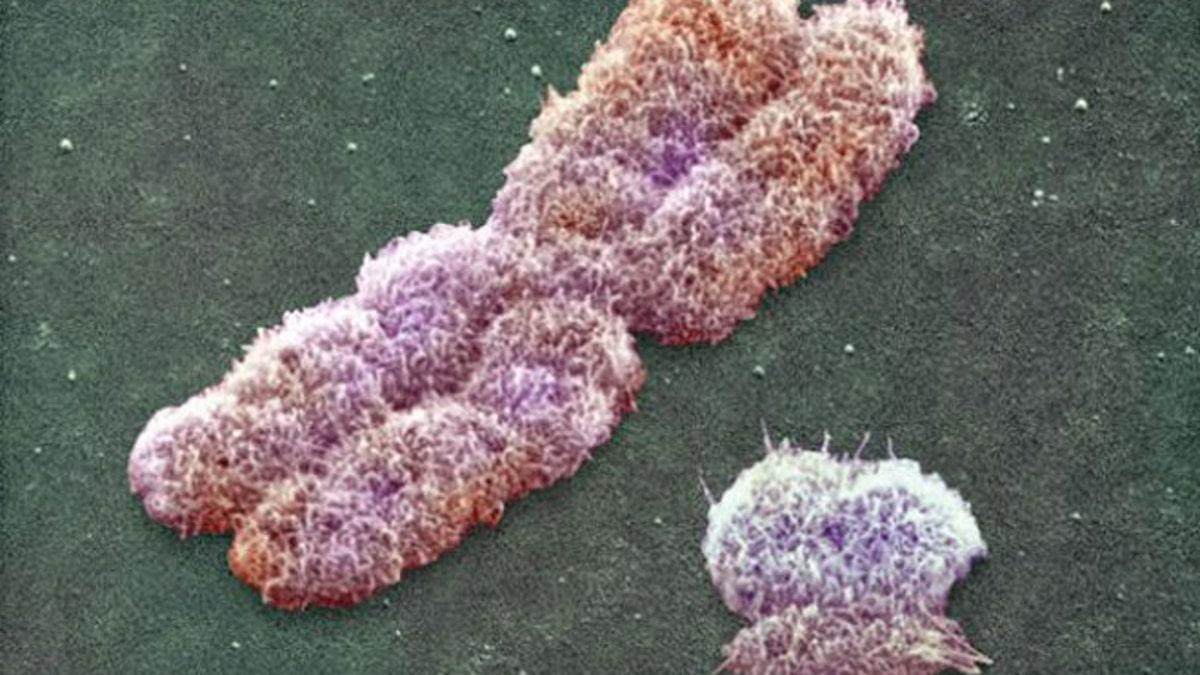
Human sex-determining chromosomes: X chromosome (left) and the much smaller Y chromosome. (University of Arizona)
You're older than you think.
DNA from an unnamed African-American from South Carolina is so distinctive that it led scientists to a unique conclusion: The roots of the human tree date back much further than previously thought.
"This lineage diverged from previously known Y chromosomes about 338,000 years ago, a time when anatomically modern humans had not yet evolved," said Michael Hammer, an associate professor in the University of Arizona's department of ecology and evolutionary biology and a research scientist at the UA's Arizona Research Labs. "This pushes back the time the last common Y chromosome ancestor lived by almost 70 percent."
[pullquote]
The human Y chromosome – the hereditary factor determining male sex -- is unlike the other human chromosomes in one key way: the majority of it doesn’t exchange genetic material with other chromosomes, making it a simple way to trace ancestral relationships.
If two Y chromosomes carry the same mutation, it is because they share a common paternal ancestor at some point in the past. The more mutations that separate two Y chromosomes, the further back in time the common ancestor lived. And the South Carolina man’s genes -- obtained by a consumer genetic testing company and given to the National Geographic Genographic Project -- have more than any seen to date.
“[His] lineage didn't fit anywhere on the existing Y chromosome tree, even though the tree had been constructed based on perhaps a half-million individuals or more. Nobody expected to find anything like this," Hammer said.
The fossil record dates back about 200,000 years, he said; this chromosome goes back to an even earlier time. Either interbreeding with Neanderthals or other populations led to the unusual genetic makeup, he said, or humans evolved far earlier than the extant fossil record suggests.
Either way, this isn’t proof of “Adam,” Hammer said.
The scientist quashed suggestions that the DNA could point to a “Garden of Eden” first man and woman scenario, a so-called "mitochondrial Eve" or "Y chromosome Adam." Human evolution is far more complex, he said.
It’s a misconception that the genealogy of a single genetic region reflects population divergence. Instead, our results suggest that there are pockets of genetically isolated communities that together preserve a great deal of human diversity."
Indeed, it’s likely that additional discoveries will push that lineage back further, he noted.
The results are published in the American Journal of Human Genetics.








































